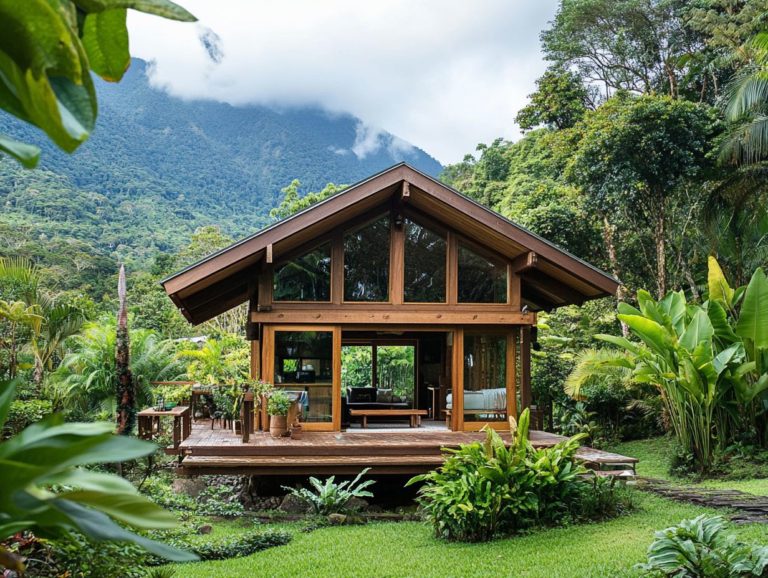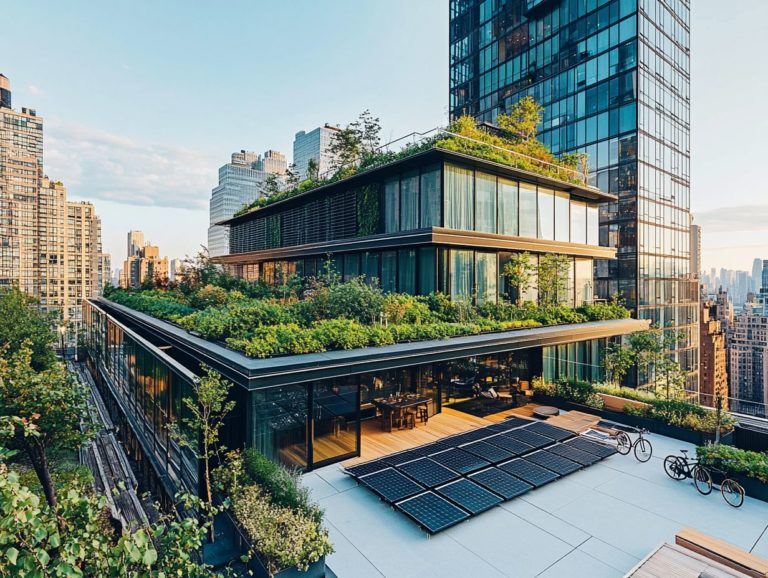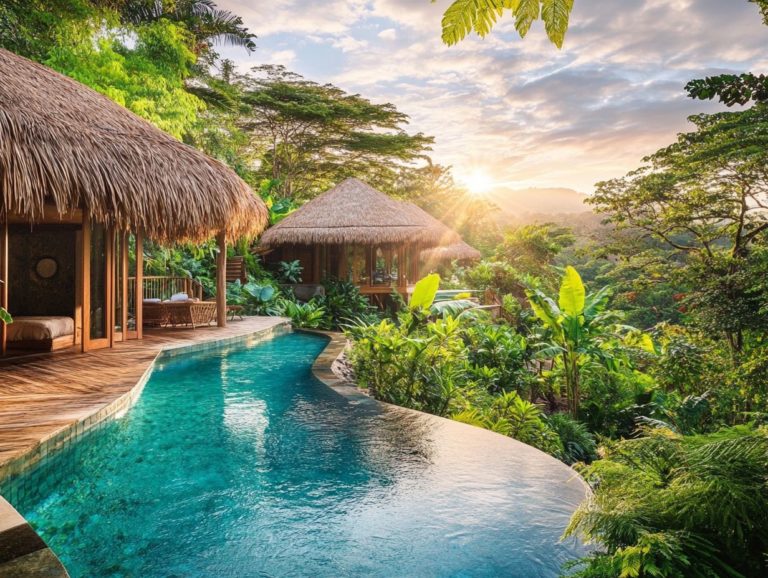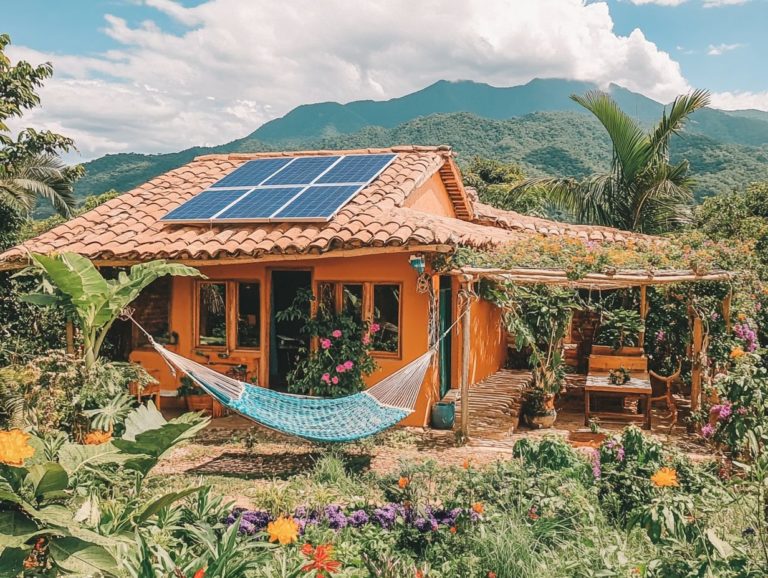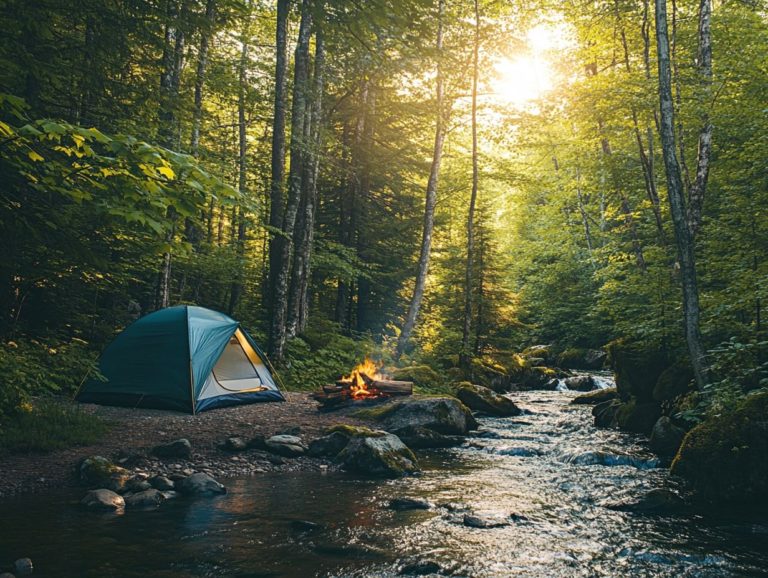The Role of Water Conservation in Hotels
Water conservation is not just an option. It s essential, especially in the hotel industry due to high water demand.
As environmental concerns escalate, particularly from climate change, hotels must adopt responsible practices to minimize their ecological footprint.
Get ready to explore exciting new techniques for water conservation! This article highlights water efficiency systems and strategies to reduce waste in guest rooms. You ll discover the many benefits these practices offer, from significant cost savings to an enhanced reputation within the industry.
We will also address the challenges of implementing these methods and showcase successful case studies. You ll gain a comprehensive understanding of how hotels can lead in sustainability.
Contents
- Key Takeaways:
- The Importance of Water Conservation in Hotels
- Water Conservation Techniques in Hotels
- Benefits of Water Conservation for Hotels
- Challenges and Solutions for Implementing Water Conservation
- Case Studies of Successful Water Conservation in Hotels
- Frequently Asked Questions
- What role does water conservation play in hotels?
- Why is water conservation important in the hotel industry?
- How do hotels conserve water?
- What are the benefits of water conservation in hotels?
- Are there any regulations or guidelines for water conservation in hotels?
- How can guests contribute to water conservation in hotels?
Key Takeaways:
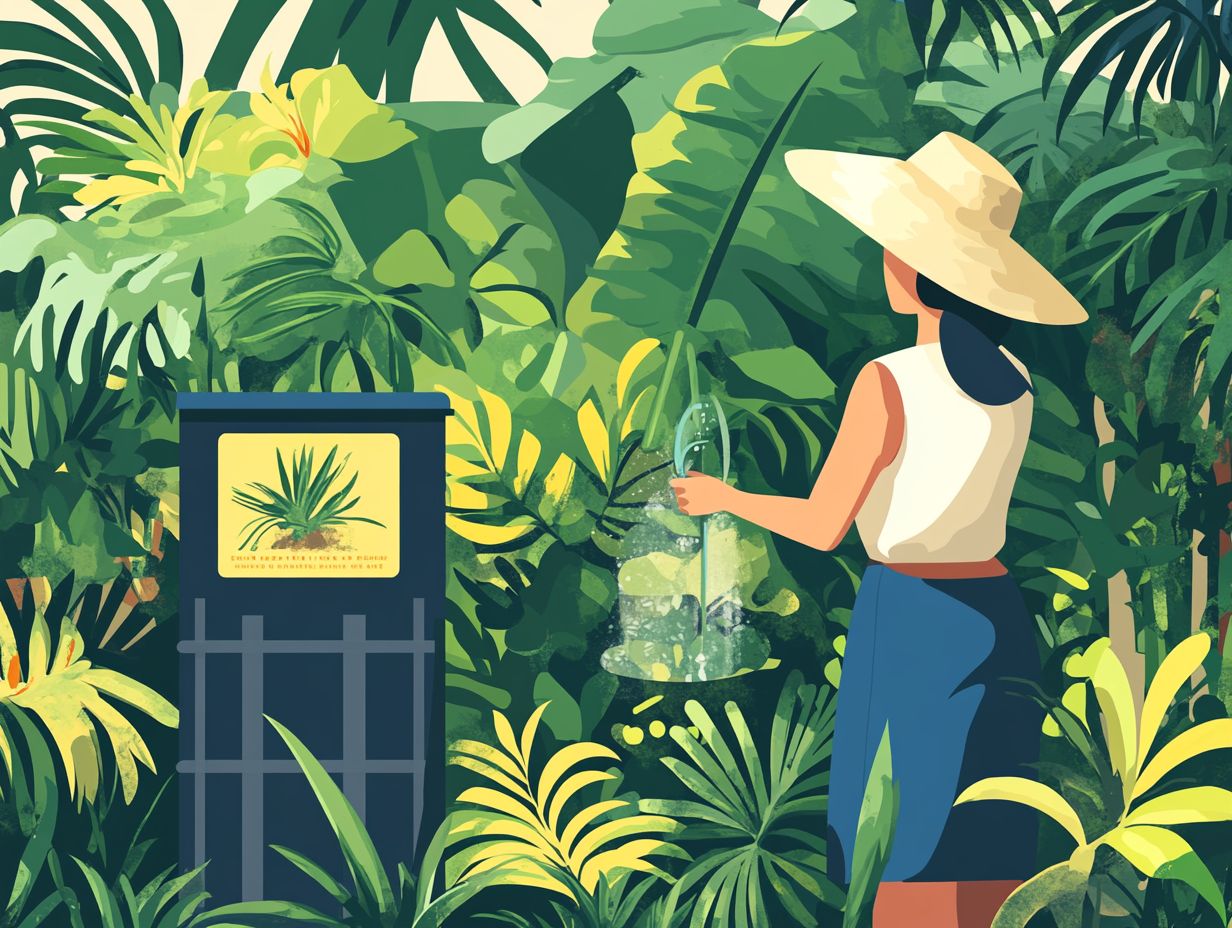
- Water conservation is crucial for hotels to fulfill their environmental responsibilities and reduce their impact on the planet.
- Efficient plumbing and irrigation systems, along with reducing water waste in guest rooms and common areas, are effective techniques that contribute to water management.
- Start conserving water today to save costs and protect our planet!
The Importance of Water Conservation in Hotels
Water conservation in hotels is an important part of running a hotel. It stands as a cornerstone of environmental sustainability, especially with rising challenges like climate change, population growth, and water scarcity.
As you navigate the complexities of the hospitality industry, dealing with increased utility bills and heightened guest expectations for eco-friendly practices, effective water management becomes a critical priority. Hotels must embrace sustainable water strategies that reduce consumption while also enhancing operational efficiency, preserving vital water resources for future generations.
Environmental Impact and Responsibility
The environmental impact of water usage in hotels extends beyond individual establishments. It significantly contributes to water pollution and resource depletion, amid the pressing challenges of climate change.
This places a considerable responsibility on hotels to adopt effective water conservation practices that protect vital resources and shield local ecosystems from degradation. By choosing sustainable methods, you can greatly reduce your water footprint and enhance both efficiency and environmental stewardship.
Government funding plays a pivotal role in supporting these eco-friendly initiatives, providing financial backing for innovative technologies designed to combat water pollution. Collaboration between the hospitality sector and government can cultivate a culture of sustainability, resulting in a reduced environmental footprint and a more resilient future for our water resources.
Water Conservation Techniques in Hotels
Implementing effective water conservation techniques is crucial for reducing water consumption and enhancing operational efficiency. By adopting these practices, you contribute to operational excellence and play a vital role in protecting our essential water resources.
Efficient Plumbing and Irrigation Systems
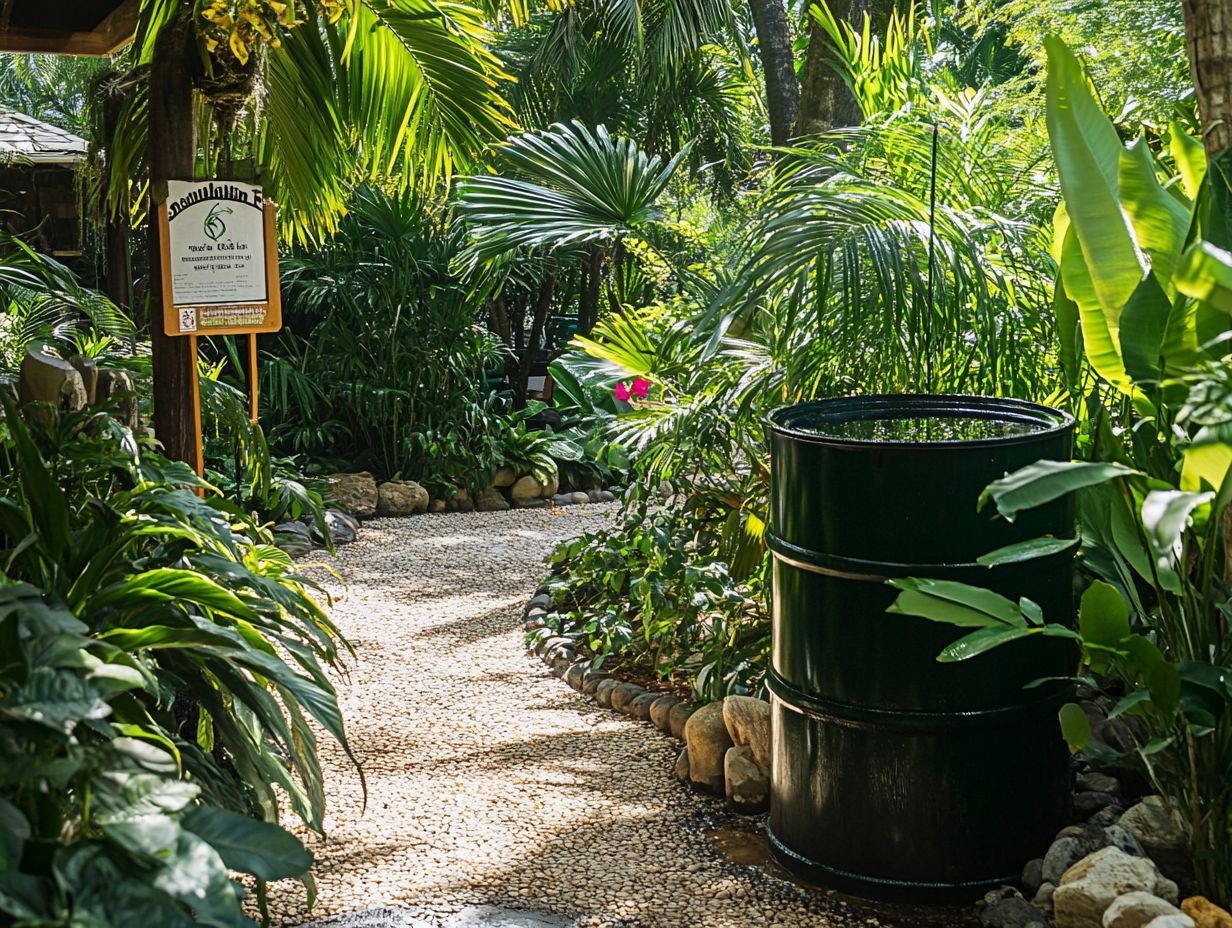
Efficient plumbing and irrigation systems are essential for your water conservation strategies in hotels. They significantly reduce both water usage and costs.
These systems optimize water delivery and minimize waste, which is vital for sustainability. By incorporating modern plumbing fixtures, you can achieve substantial decreases in water flow rates and conserve precious resources. Using irrigation systems designed for native landscaping fosters a resilient ecological environment.
Native landscaping utilizes drought-resistant plants that require minimal watering, perfectly complementing graywater systems that recycle water from sinks and showers for irrigation. Together, these practices create an effective approach to water management, enhancing long-term sustainability without sacrificing aesthetic appeal.
Reducing Water Waste in Guest Rooms and Common Areas
Reducing water waste in guest rooms and common areas is crucial for your hotel s water conservation initiatives. A comprehensive strategy that blends technology with employee training is necessary.
Installing water-saving fixtures, such as low-flow showerheads and faucets, dramatically cuts down on water consumption without compromising guest comfort. Regular maintenance checks are vital to catch leaks and ensure efficient operation of plumbing fixtures.
Employee training is essential; your staff should understand the conservation initiatives to effectively communicate these efforts to guests. By informing visitors about the advantages of water conservation, you can actively involve them, fostering a collective commitment to environmental preservation.
Benefits of Water Conservation for Hotels
The benefits of water conservation for hotels are extensive. You gain significant cost savings and enhance your reputation while improving operational efficiency.
By prioritizing water conservation, you promote environmental sustainability, making a positive impact while enjoying the rewards of responsible management.
Save Money and Boost Your Reputation
Water conservation directly translates into substantial cost savings, significantly reducing operational expenses linked to utility bills and maintenance, aligning with green management.
Beyond financial advantages, adopting eco-friendly practices strengthens your hotel’s bottom line and enhances its position in the competitive tourism market. As travelers become more aware of their environmental impact, they seek accommodations that show a commitment to sustainability. By implementing these policies, you attract eco-conscious guests and cultivate loyalty among your clientele.
This commercial interest in green solutions elevates your establishment s reputation, making it a preferred choice and driving repeat business. Satisfied guests sharing positive experiences amplify your hotel’s visibility through word-of-mouth and social media platforms, further enhancing your appeal.
Challenges and Solutions for Implementing Water Conservation
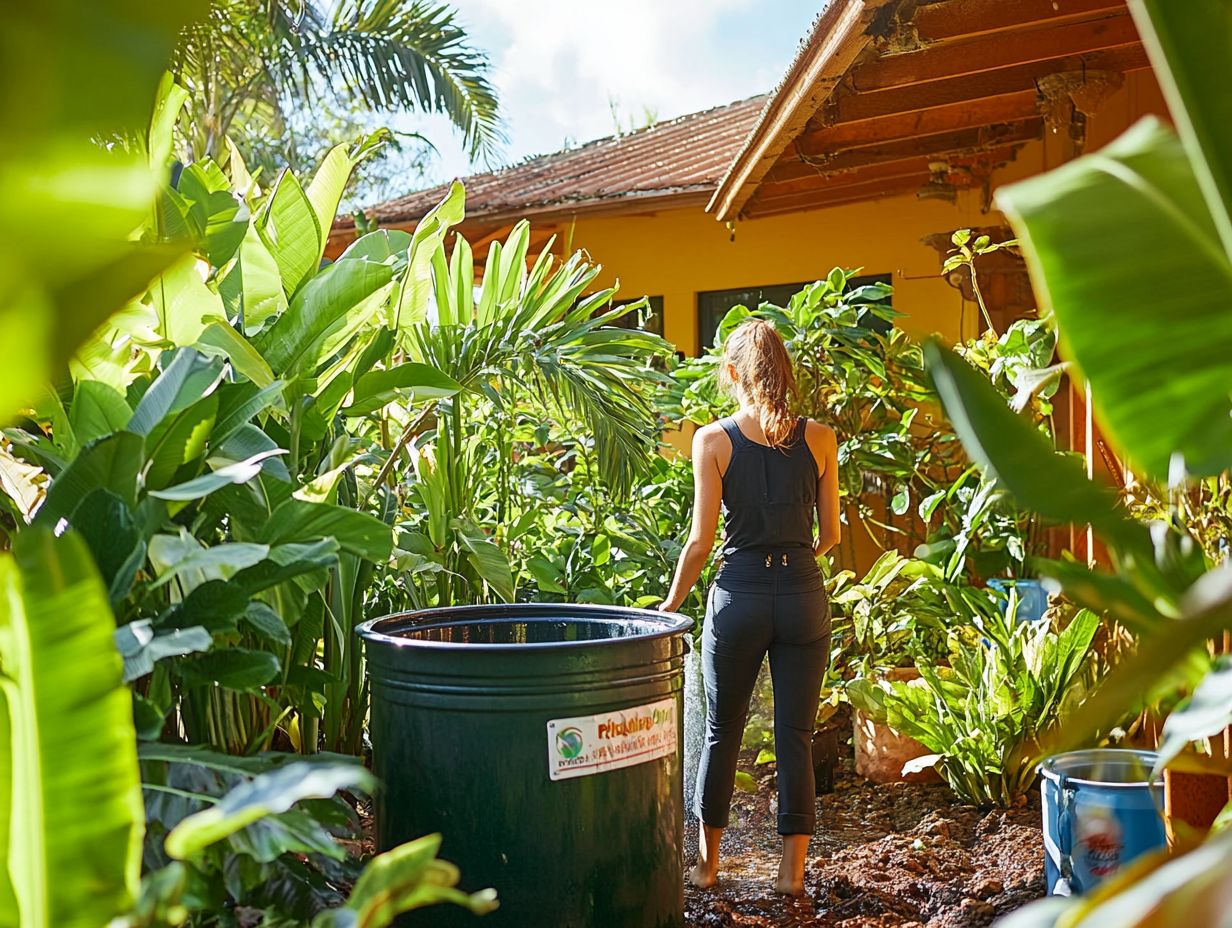
Implementing water conservation strategies in hotels can be challenging and requires innovative solutions. Fostering employee engagement and securing government funding for sustainable initiatives are key elements in this endeavor.
Act now to enhance your sustainability efforts and attract eco-conscious guests!
Overcoming Resistance and Finding Sustainable Solutions
Overcoming resistance to water conservation initiatives in hotels demands a strategic approach that emphasizes employee training and the formulation of effective environmentally friendly practices.
You may encounter resistance for various reasons, such as a lack of awareness about the environmental consequences of water usage or concerns about altering traditional operating procedures. By actively engaging your staff through comprehensive training programs, you can foster a culture of sustainability where employees feel enabled to embrace and advocate for conservation strategies.
Include hands-on workshops and interactive sessions to effectively illustrate the advantages of ways to save water, like low-flow fixtures and guest engagement campaigns.
Prioritizing employee education improves acceptance of eco-friendly practices and cultivates a unified effort toward achieving your hotel s sustainability goals.
Case Studies of Successful Water Conservation in Hotels
Let s look at successful water conservation stories from hotels. They offer great strategies you can try throughout the hospitality industry.
For instance, establishments like Zeavola Resort exemplify significant advancements in eco-friendly practices, serving as a model for others to follow in their journey toward sustainability.
Examples of Hotels Implementing Water Conservation Strategies
Numerous hotels have successfully embraced innovative water conservation strategies, establishing themselves as exemplary models of sustainable tourism and eco-friendly practices.
Take the InterContinental Barcelona, for instance. This hotel has implemented a comprehensive rainwater harvesting system, significantly reducing its dependence on municipal water sources. This move underscores its commitment to environmental stewardship and bolsters its brand image among eco-conscious travelers.
Similarly, the Ritz-Carlton in Bali has rolled out an engaging program designed to educate guests on water-saving practices. It invites you to actively participate in the hotel s sustainability initiatives.
By blending education with actionable strategies, these hotels cultivate a deeper connection with their guests while enhancing their reputation in the competitive hospitality landscape.
Frequently Asked Questions

What role does water conservation play in hotels?
The role of water conservation in hotels is to reduce water use in daily operations and guest consumption to preserve natural resources and lessen the hotel’s environmental footprint.
Why is water conservation important in the hotel industry?
Water conservation is crucial in the hotel industry because hotels use a significant amount of water daily for activities such as cooking, cleaning, and guest consumption. By conserving water, hotels can save money on their water bills while contributing to the conservation of natural resources.
How do hotels conserve water?
Hotels can conserve water in several ways:
- Installing low-flow fixtures
- Implementing towel and linen reuse programs
- Fixing leaks promptly
- Educating guests and staff about water conservation practices
What are the benefits of water conservation in hotels?
The benefits of water conservation in hotels include cost savings, reduced environmental impact, and improved reputation. By conserving water, hotels can also be more resilient during droughts or other water shortages.
Are there any regulations or guidelines for water conservation in hotels?
Yes, there are regulations and guidelines for water conservation in hotels, depending on the location. Some countries or regions may have specific laws or standards for water usage in hotels, and some hotels may voluntarily follow sustainability certifications that include water conservation measures.
How can guests contribute to water conservation in hotels?
Guests can contribute to water conservation in hotels by:
- Using towels and linens multiple times before requesting replacements
- Taking shorter showers
- Reporting any leaks to hotel staff
- Being mindful of water usage during their stay
Every little action counts! You can make a difference during your stay.

